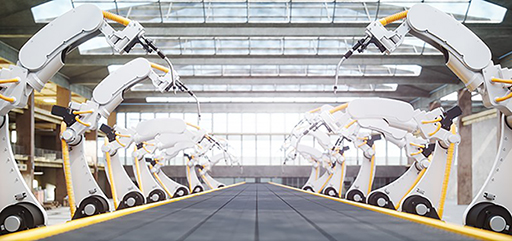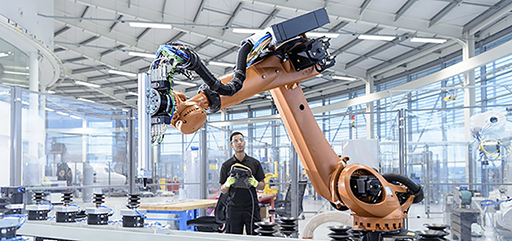The rise of artificial intelligence (AI) may seem frightening at the moment, but it doesn’t need to be. This new industrial revolution can, and should, be embraced because AI has the potential to benefit society. However, we need to put in the work now to ensure that these upcoming, dramatic changes help individuals, businesses and governments in the future.
First, though, the bad news. While the Industrial Revolution increased the number of jobs available – with skilled craftsmen and unskilled workers alike moving into regular, if routine, work – AI has the potential to completely replace repetitive, manual work. A recent study by global management consulting firm McKinsey warns us that half of all currently existing work activities could be replaced by automation once AI reaches full speed.
It is not science fiction to say that these jobs won't exist in 10 to 20 years' time; it is a matter of fact. With American researchers leading AI discoveries, and Chinese researchers leading the implementation of those new ideas in the world's most competitive market, these two superpowers will bring about the fastest and greatest technological revolution we've ever seen.
So, how do we ensure that we get ahead of the 'rise of the robots'? One thing is for sure: individuals, businesses and governments all have a big role to play.
"We are facing a period of monumental change – and it will take monumental action to get ahead of it."
For individuals, part of preparing for the AI age is accepting that it's coming – and that routine jobs are not going to be around. Youngsters need to start looking for careers that cannot be easily replaced by these new technologies – and those approaching retirement age should start enjoying themselves, taking early retirement, using the gig economy and volunteering to fill the gap.

Intelligent automation promises to redesign more than just the factory floor.
Businesses, meanwhile, need to borrow from BlackRock founder Larry Fink’s famous missive, A Sense of Purpose, in which he called on companies not to wait for governments to fix society, but rather, for every company to serve a social purpose, too. Large firms must establish and fund serious corporate social responsibility efforts today to help society transition into the age of automation and the future of work.
For employers, it means that if they can see job 'displacement' becoming a reality, they need to introduce employee training programmes now which focus on developing emotional intelligence and soft skills. Reimbursement for online training should come standard as we attempt to develop a culture of lifelong learning.
In addition, service industries should develop clear career ladders that demonstrate to youngsters that there is a way for them to end up in the top job someday.

Working alongside robots is becoming ever more popular.
Meanwhile, the engines of our economy – the investment firms – need to start looking at investing in companies with a positive, outward-facing social impact, rather than investing only in start-up tech firms.
If this sounds like a radical call to arms, that's because it is. We are facing a period of monumental change, and it will take monumental action to get ahead of it. Western governments are not always good at facing up to radical change, but they will need to do so.
The good news is that the AI revolution will produce huge material wealth. Governments must use that wealth to reconstruct our economies and rewrite our social contracts.
I want to propose two distinct shifts in government activity:
- The first is that the state will soon have to provide minimum basic services, including food, shelter, healthcare and education. The latter two we are used to, but the first two will be anathema to some. However, the free-market revolution that is AI innovation needs the state by its side.
- The second shift is to develop a social investment stipend, which would provide a respectable salary and career if individuals throw themselves into one of three things: care, service or education. That runs the gamut from environmental remediation officers to after-school teachers.
We need to write a new chapter in human history if we are not just to survive the AI revolution but thrive in it.
Some have argued for a universal basic income as the way out from under the rolling AI rock, but I demur. Apart from being unnecessarily costly, the lack of incentives in the system could lead to serious issues down the line.
With those two programmes in place, governments could go back to more traditional approaches: supporting those who may face losing their jobs, as well as properly funding schools, training centres and unemployment offices to eliminate outdated programmes and develop new ones.
I make no apology for the ambition of this plan. We need to write a new chapter in human history if we are not just to survive the AI revolution but thrive in it.
It's my belief that if we get AI 'right', it will not just lead to material wealth but to a vast increase in human happiness, too. Could AI, ironically, be the spur for us to become a little more human again?
Time will tell. But change is coming – and we had better be ready.
About the author:
Kai-Fu Lee is the CEO of Sinovation Ventures and author of the new book, AI Superpowers: China, Silicon Valley and the New World Order.
Watch Kai-Fu Lee’s TED talk on compassion, creativity and how AI and mankind can coexist:
Receive Focus insights straight to your inbox




